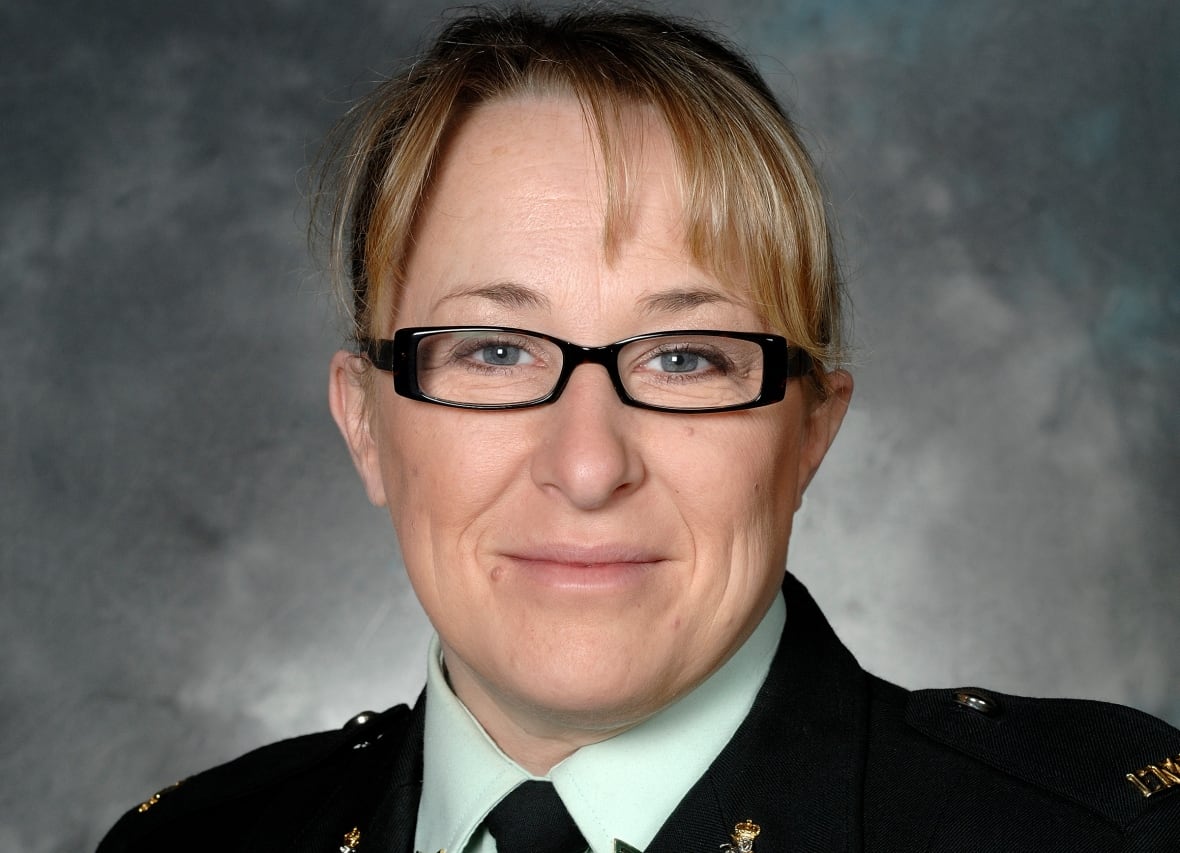Number of sexual assaults reported in military spiked last year, StatsCan survey says
Number of CAF members who said they were assaulted by another member more than doubled between 2018 and 2022
A new report from Statistics Canada says the percentage of military members who reported being sexually assaulted by another member of the military more than doubled between 2018 and 2022.
The report says 3.5 per cent of Canadian Armed Forces personnel said they were sexually assaulted by another military member in 2022. That same year, in response to a large number of claims of sexual misconduct in the ranks, the military promised that reform was underway.
The 2022 figure is a significant increase over the 1.6 per cent reported by the same survey in 2018, and the 1.7 per cent reported in 2016.
Lt.-Gen. Jennie Carignan, the military's chief of professional conduct and culture, said it's a troubling trend.
"I am very concerned," Carignan told CBC News. "I am also definitely very convinced that this work needs to continue.
"And we also see indications within the survey that indicates we are on the right track. For example, the number of bystanders now intervening and actually taking action has increased."
The government and military promised to overhaul how the military handles sexual misconduct cases after a third-party review by retired Supreme Court justice Louise Arbour called for sweeping changes. Multiple senior military leaders were removed from prestigious posts in 2021 in response to misconduct allegations.
Carignan said the increase in sexual assault cases in 2022 could be both "good news and bad news." She said more analysis is needed to understand if the data suggests more people are reporting allegations because of increased awareness of sexual misconduct.
"Then again, it could be bad news," said Carignan, who was tasked by the military with reforming the Armed Forces' culture. "We want to eradicate those behaviours."
Statistics Canada defines sexual assault as sexual attacks, unwanted touching and sexual activity when the victim was unable to consent.
Victims of these assaults were more likely to be women, the survey found, and they were disproportionately younger, Indigenous, members of the LGBTQ+ community or people with disabilities.
Calls to ban alcohol
The Statistics Canada survey also found that 33 per cent of respondents who were victims of sexual assault in the previous 12 months believed the perpetrator's use of alcohol or drugs was a contributing factor in the assault. Almost all of those respondents — 96 per cent — said specifically that alcohol was involved.
Retired master corporal Sherry Bordage said its time for the military to ban alcohol on bases.
"It's not acceptable," she said. "It's about time that someone put a stop to it."
She reported being groped on the chest by her platoon commander who also made inappropriate comments to her at a mess dinner at CFB Borden in 2010, Bordage said.
"My platoon commander that evening was highly inebriated," she said. "Alcohol flowed freely ... he cornered me in the smoking section and sexually assaulted me."
Bordage said the platoon commander also made a sexual gesture at one of the most senior female military members in the room at that dinner. She says the brass at the head table who witnessed it responded with "gregarious laughter."
"It was tolerated by everyone there," she said.

When asked by CBC News if she would ban alcohol on bases, Carignan said no.
"If you ban alcohol completely, that's a one-size-fits all solution that's not appropriate in a Canadian setting," she said.
She said it could drive military parties into unsupervised private homes. Carignan said a number of preventative measures are being put in place for this holiday season.
The number of sexual assaults has tended to spike in December, something the military believes is related to social events, she said.
Carignan said the military worked with the chain of command throughout November to ensure that alcohol will no longer be used as a team building tool and that non-alcoholic beverages are also available. Senior leaders can also hold dry events, she said, although she added she was not aware of any such events being planned.
"There will not be pressure on our members to drink if this is not something that is for them," she said.
Defence Minister Bill Blair also wouldn't commit to banning alcohol in the military. When asked if the military had a drinking problem, Blair said society does.
"Society has a problem with alcohol," said Blair. "I can tell you from my previous experience as a police chief, alcohol and other intoxicants are often implicating factor in sexual assault and misconduct generally."
Blair said the government can learn from the Statistics Canada report and it's working on carrying out the recommendations from Arbour's report.
Most Armed Forces members who said they experienced these assaults also said they did not report them to authorities — in many cases because they did not think it would make a difference.
More than half of those who told Statistics Canada they witnessed inappropriate sexual behaviour also said they did intervene.
Statistics Canada says one-third of regular members of the Armed Forces completed the survey and the results were weighted to represent the entire population of regular forces.
Chief of Defence Staff Gen. Wayne Eyre said the report shows the military still has work to do. He pointed out that the survey reported that 75 per cent of respondents agreed the military culture on sexual misconduct has improved since they joined up.
"This report shows we can't take our foot off the gas. Even though it shows bystander training is working, we've got to work to do," he said.
"So you'll be hard pressed to find another organization, institution in this country that's more committed to making change."
With files from Canadian Press and Chris Rands



